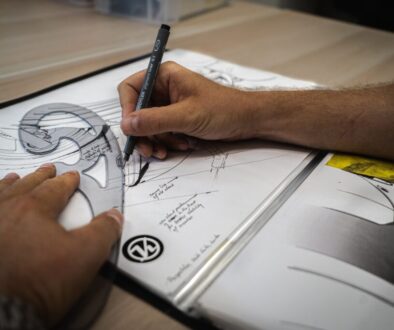Introduction
Welcome to the realm where productivity, efficiency, and human behavior intersect – the fascinating world of industrial engineering. The role of industrial engineering in optimizing processes is well-recognized. The profound influence of human factors on productivity often goes underappreciated. In this article, we embark on a journey to explore the intricate relationship between psychology and industrial engineering. Uncovering how human factors drive innovation, shape workplace dynamics, and ultimately determine the success of industrial endeavors.
1. Human-Centric Foundations of Industrial Engineering
Behind every industrial process and system lies a complex network of human interactions. Human factors encompass an array of psychological, physiological, and cognitive aspects that profoundly impact how individuals engage with their work environment. Embracing disciplines such as ergonomics, cognitive psychology, and behavioral science, industrial engineers gain insights into human behavior patterns, leading to the design of processes that harmonize with human capabilities and tendencies.
2. Ergonomics: Crafting Optimized Workspaces
Ergonomics, a pivotal aspect of industrial engineering, delves into the art of crafting workspaces and tools that align seamlessly with human physiology and comfort. By deciphering the biomechanics of human movement and understanding the dynamics of human-machine interactions, industrial engineers can establish environments that minimize physical strain and optimize efficiency. Ergonomically designed workspaces not only enhance productivity but also mitigate the risk of repetitive stress injuries and musculoskeletal disorders.
3. Cognitive Psychology’s Role in Decision-Making
Complex decision-making is at the heart of industrial operations. Cognitive psychology illuminates the intricate processes by which humans perceive, process, and make choices based on information. Industrial engineers leverage these insights to create decision-making interfaces that reduce cognitive load, improve information assimilation, and empower operators to make informed choices promptly and accurately.
4. Motivation, Engagement, and Performance
Delving into the realm of productivity involves a deep dive into human motivation and engagement. By deciphering the factors that inspire employees to perform at their best, industrial engineers can cultivate environments where intrinsic motivations align with organizational goals. Nurturing engagement through supportive work cultures and empowering leadership enhances job satisfaction, fosters commitment, and significantly augments productivity levels.
5. User-Centered Design for Innovation
Innovation often blossoms when the people involved are at the heart of the design process. The principles of user-centered design prioritize the needs, preferences, and behaviors of end-users. By involving employees in the ideation and design stages, industrial engineers create tools, systems, and processes that are intuitive, efficient, and tailored to the intricate nuances of actual work scenarios.
6. Overcoming Resistance to Change
Change, even when it promises optimization, can encounter resistance. The psychology of change management provides industrial engineers with strategies to navigate this challenge effectively. By acknowledging the psychological aspects of resistance and employing strategies to mitigate concerns, engineers can ensure that transitions are smoother and disruptions are minimized.
7. Cultivating a Productive Work Culture
A productive workplace isn’t solely defined by efficient processes; it’s deeply influenced by the culture that pervades it. Understanding human psychology allows industrial engineers to establish cultures that foster collaboration, open communication, and a sense of purpose. A workplace where employees feel valued, heard, and connected not only enhances overall job satisfaction but also contributes to increased productivity and sustained excellence.
Conclusion
Industrial engineering transcends mechanical systems and numerical optimization; it is fundamentally rooted in the intricacies of human behavior. The psychology of productivity represents a gateway to holistic efficiency, where the alignment of processes, systems, and workplace culture with human nature leads to remarkable outcomes. As we navigate the ever-evolving landscape of industrial engineering, acknowledging the psychology of productivity is an imperative step toward creating not only efficient systems but also empowering and enriching work environments.








